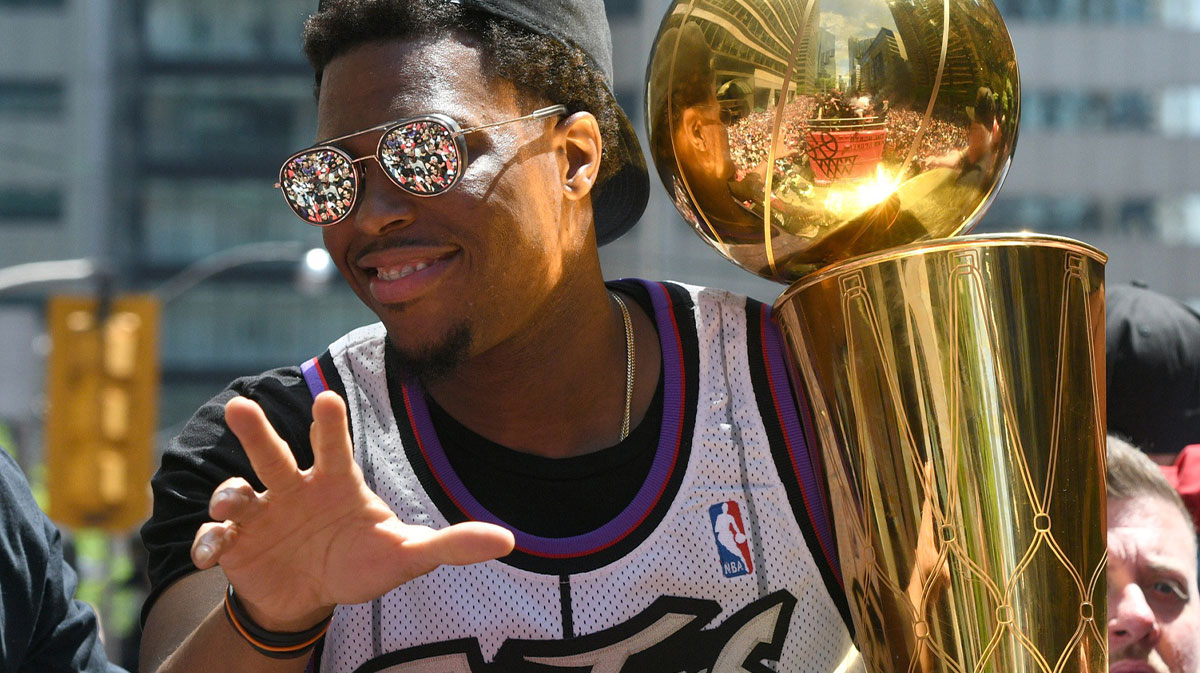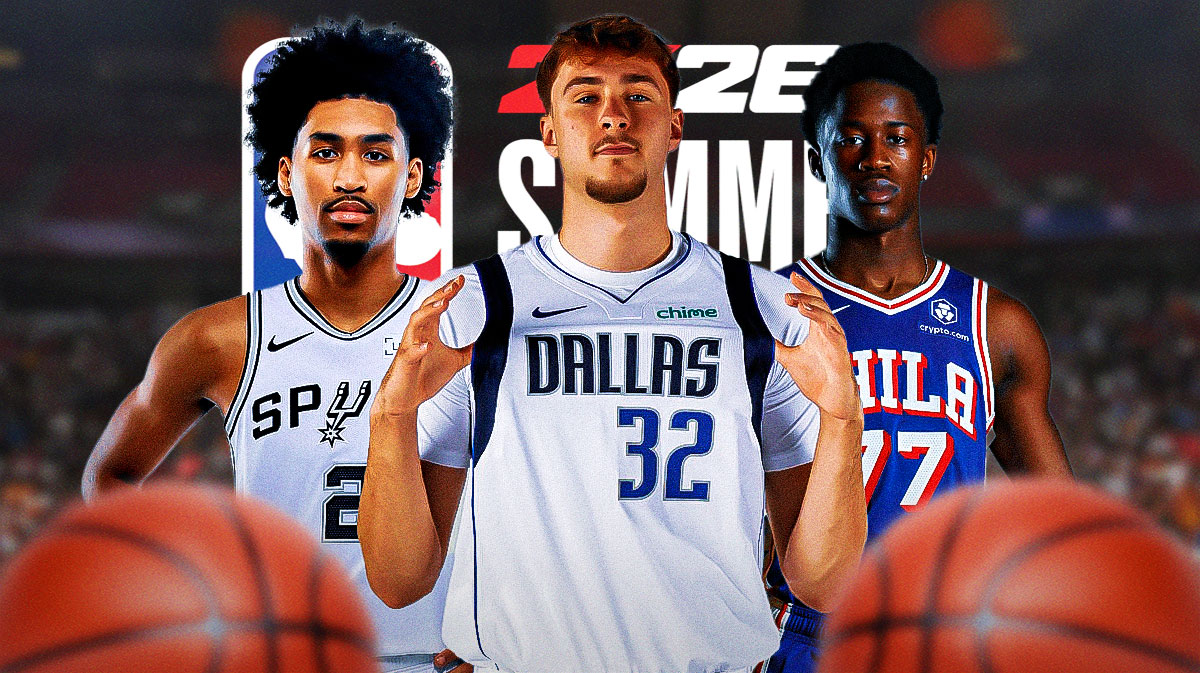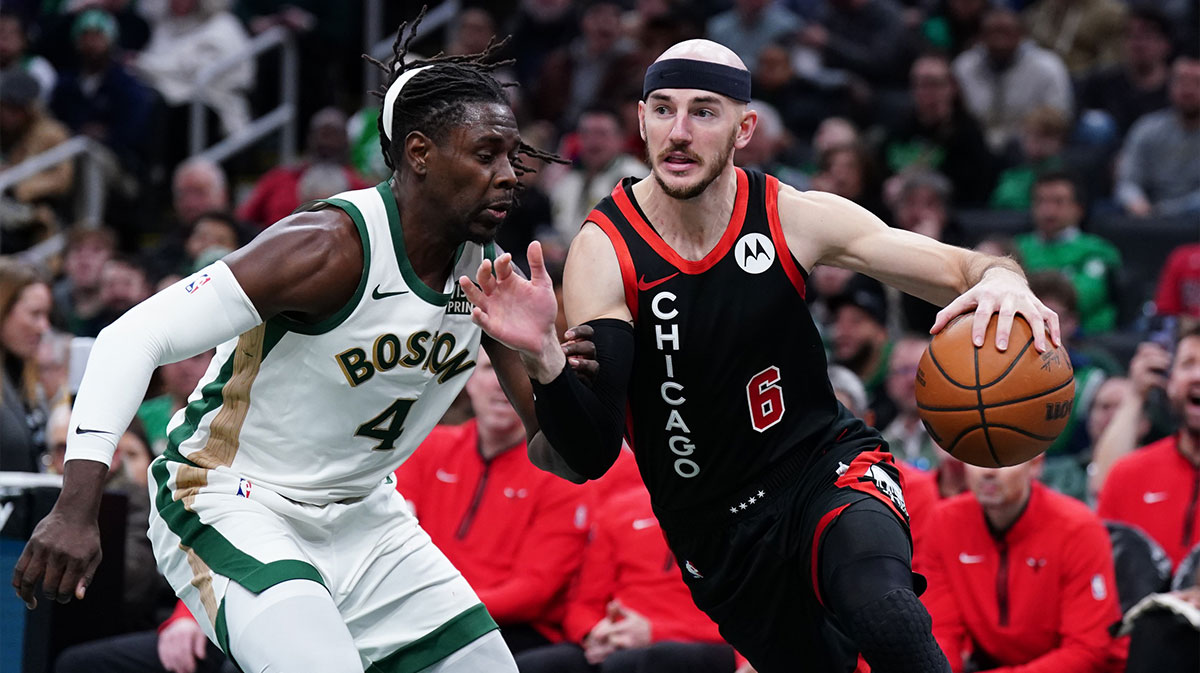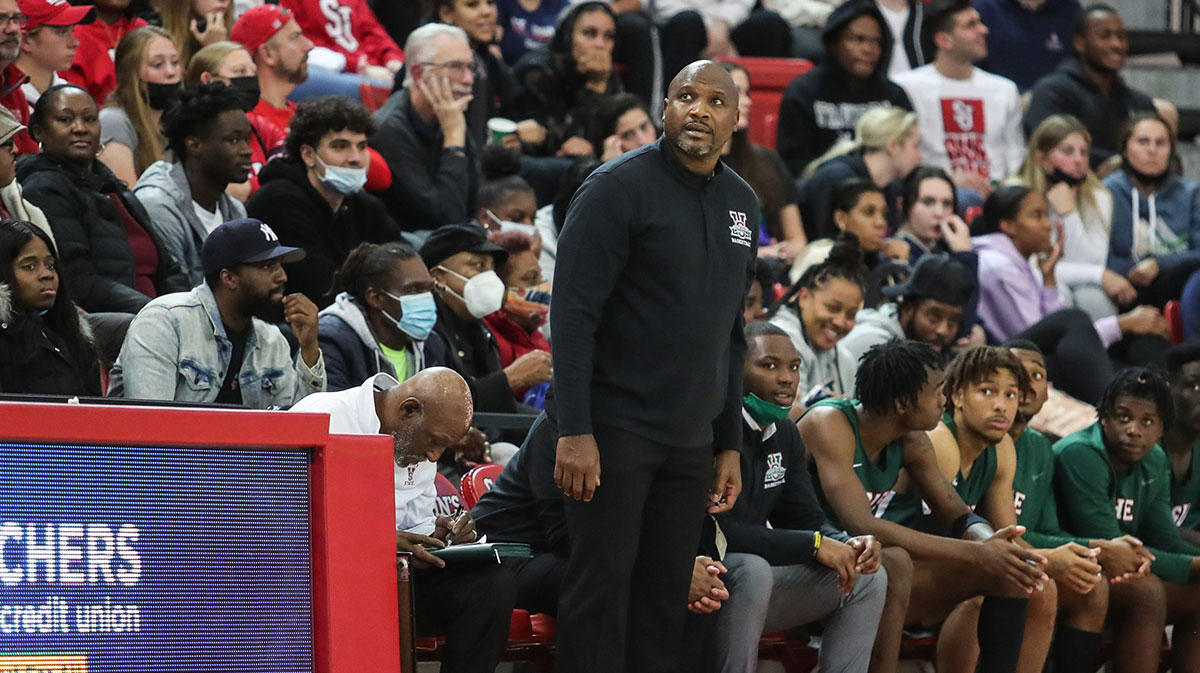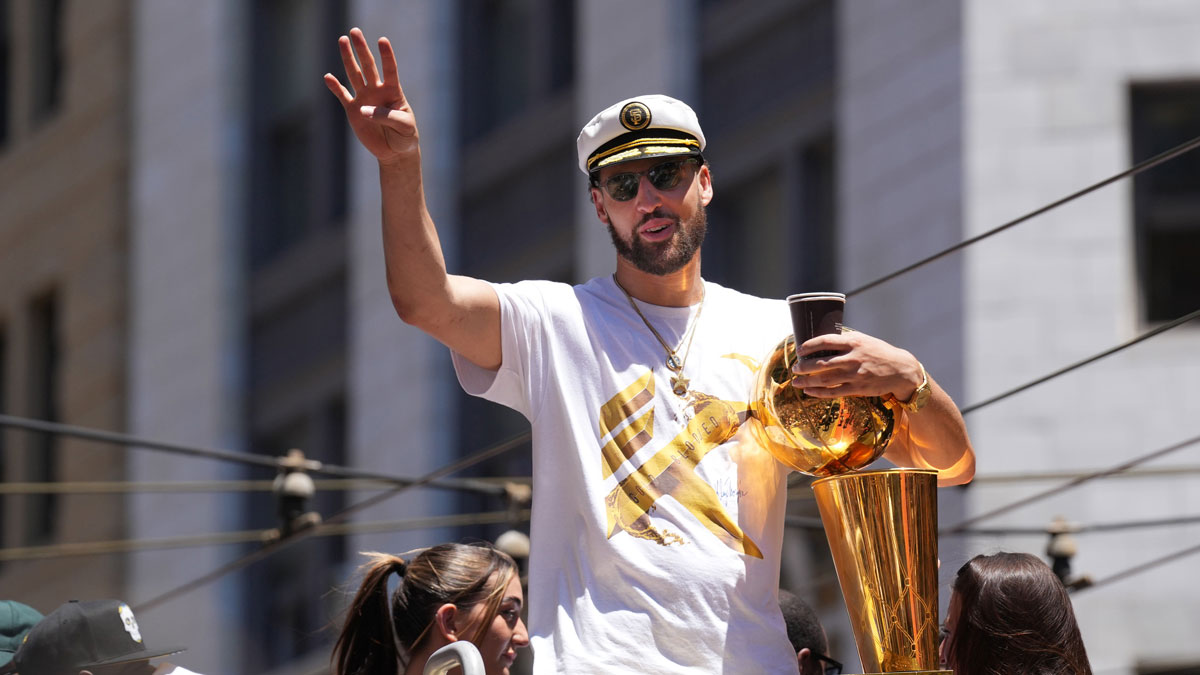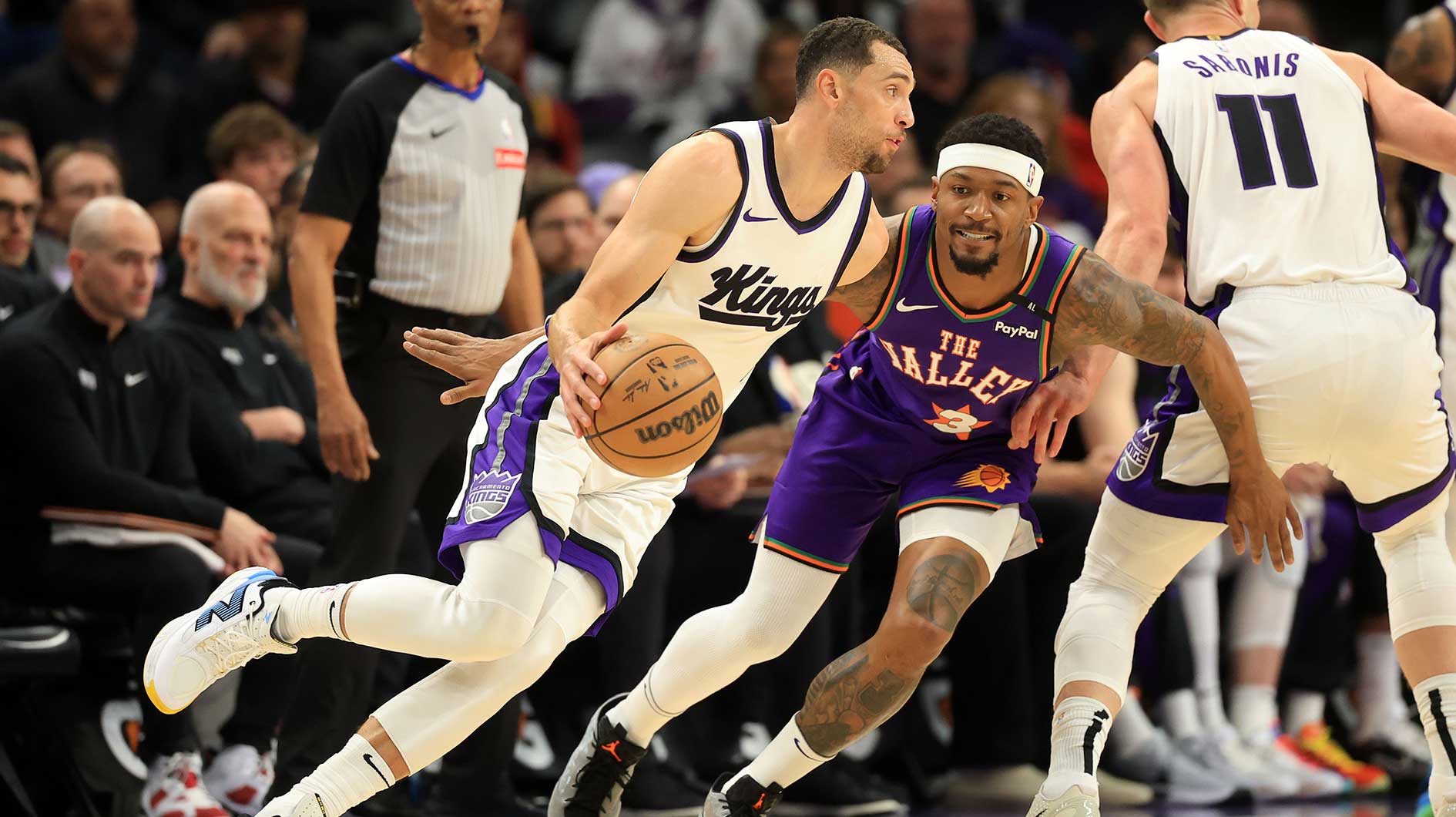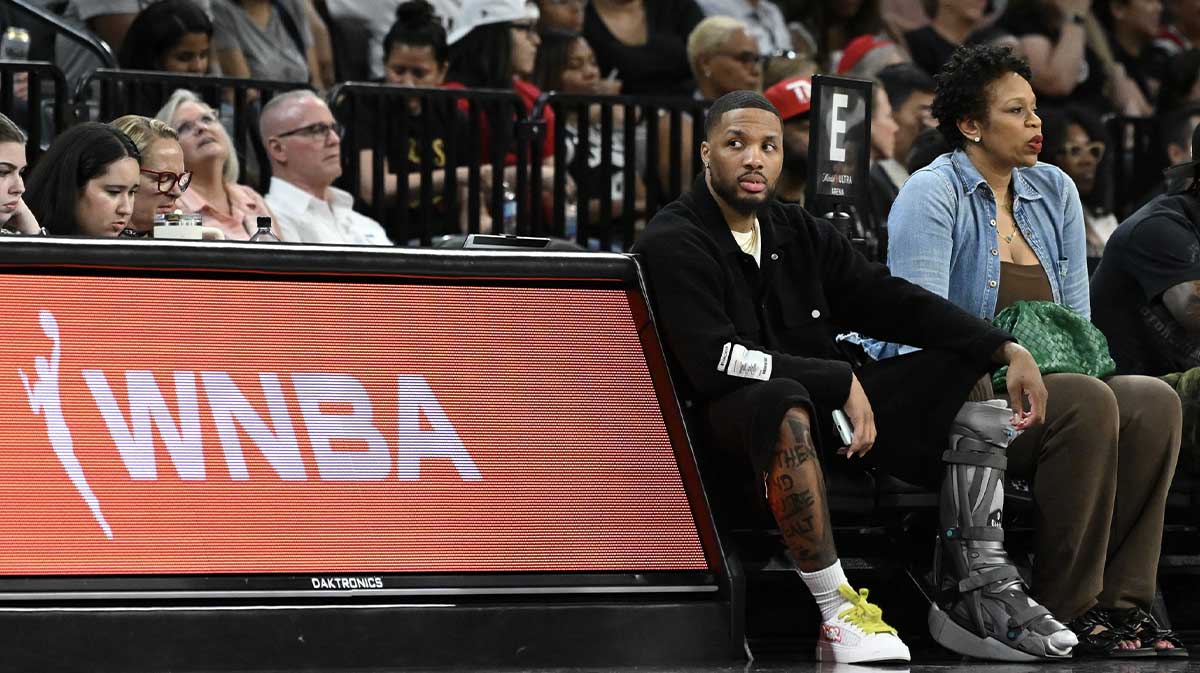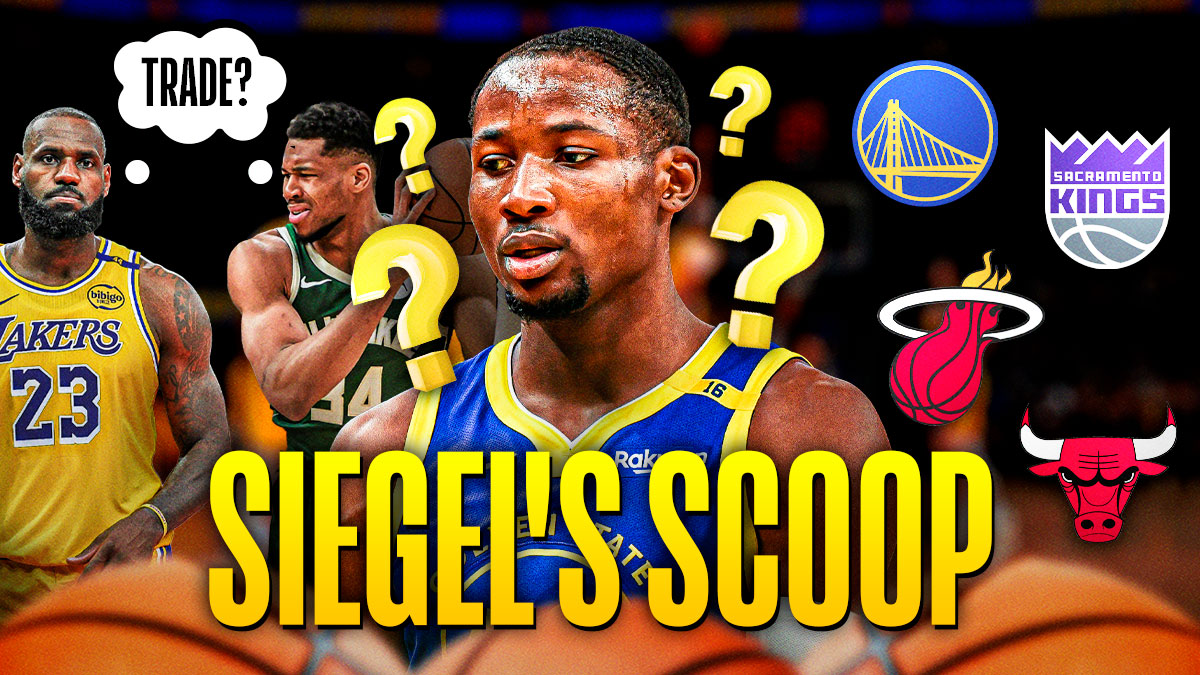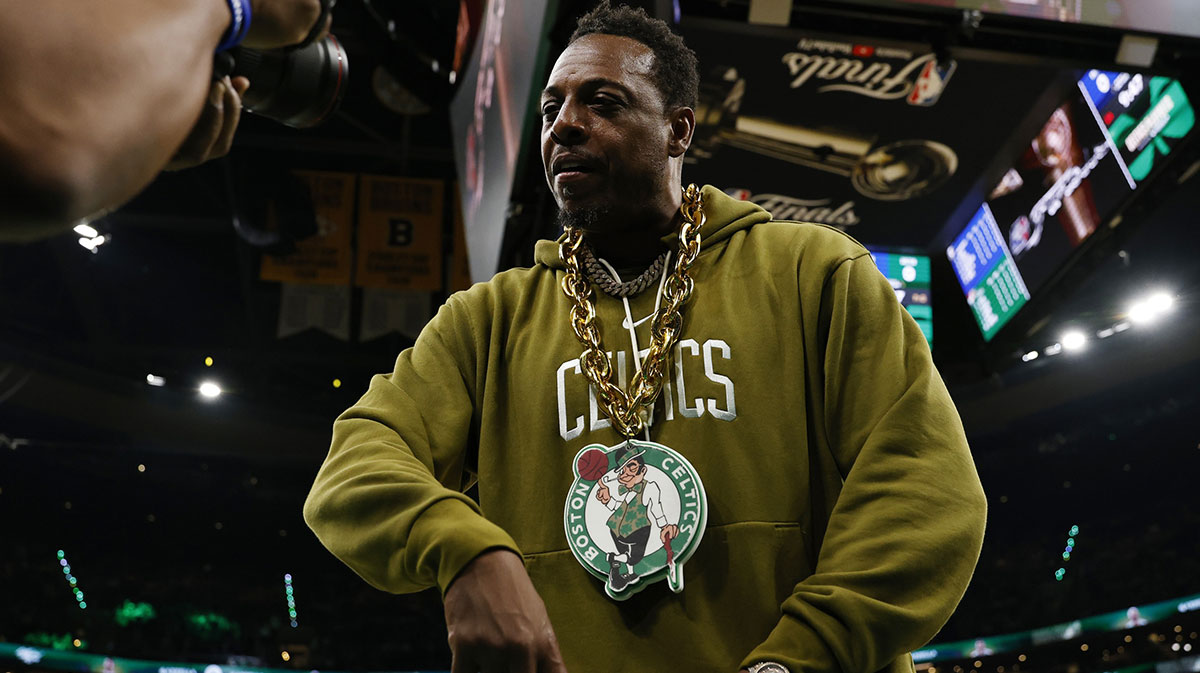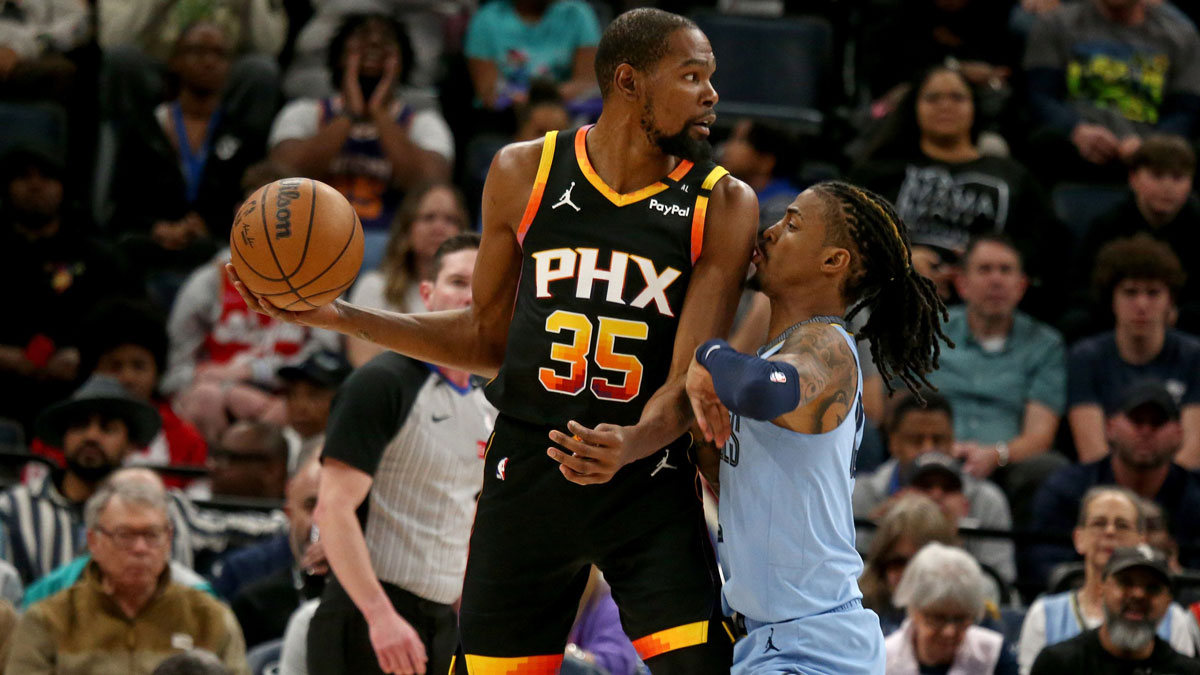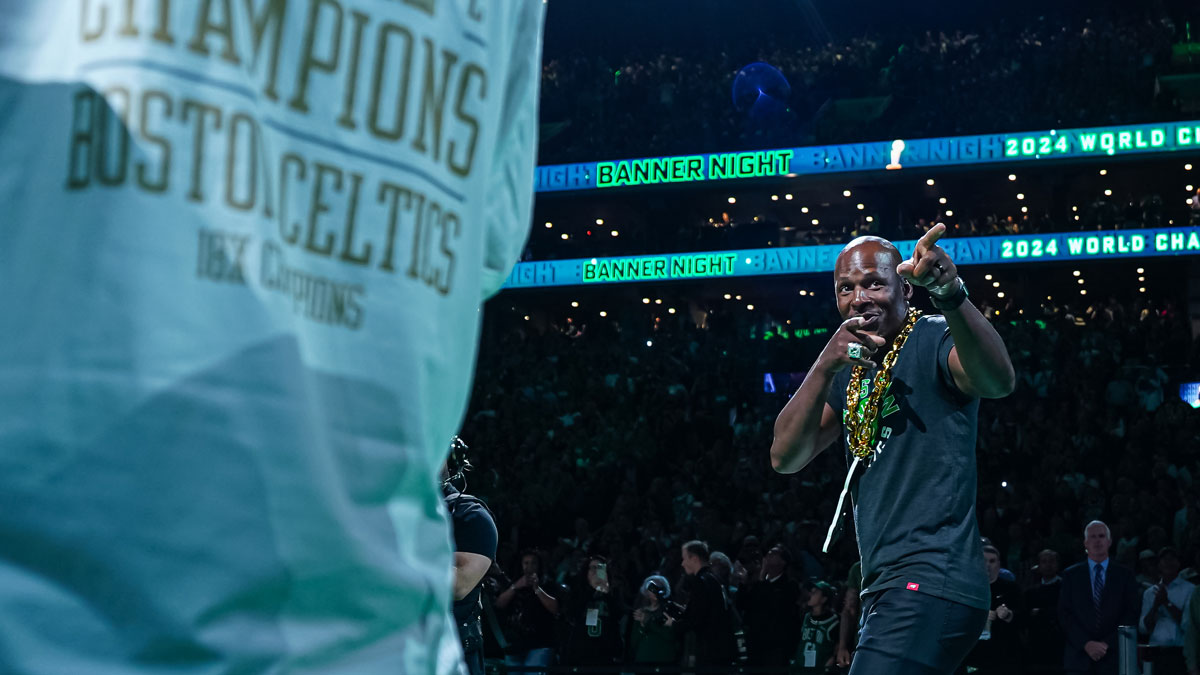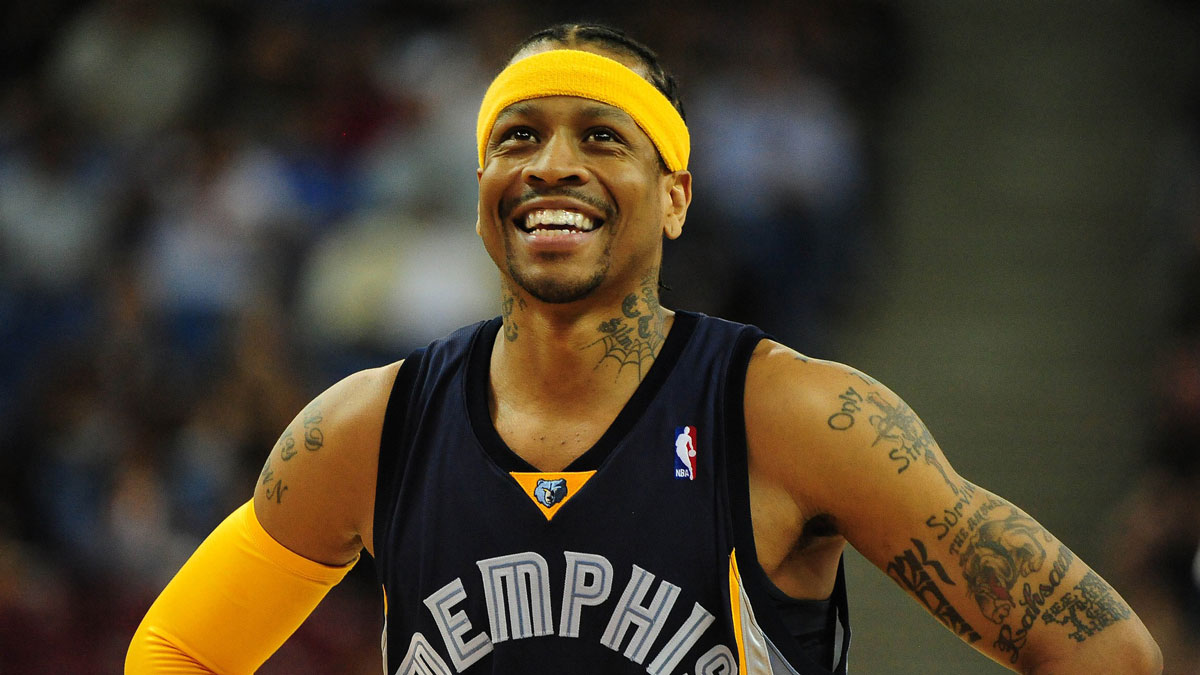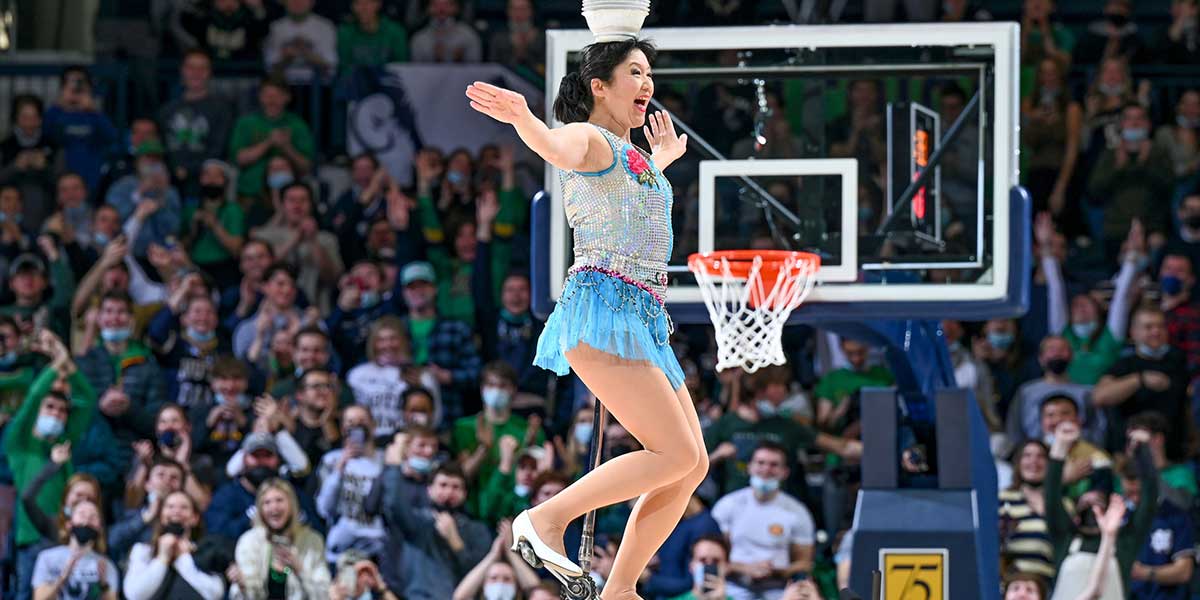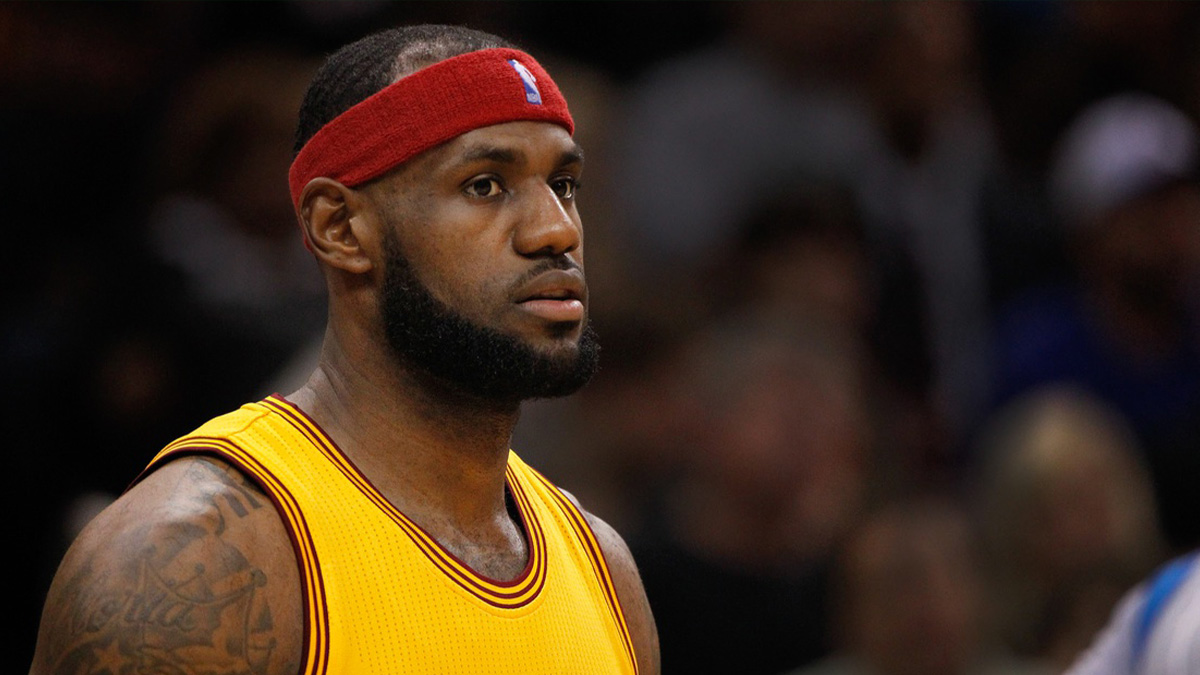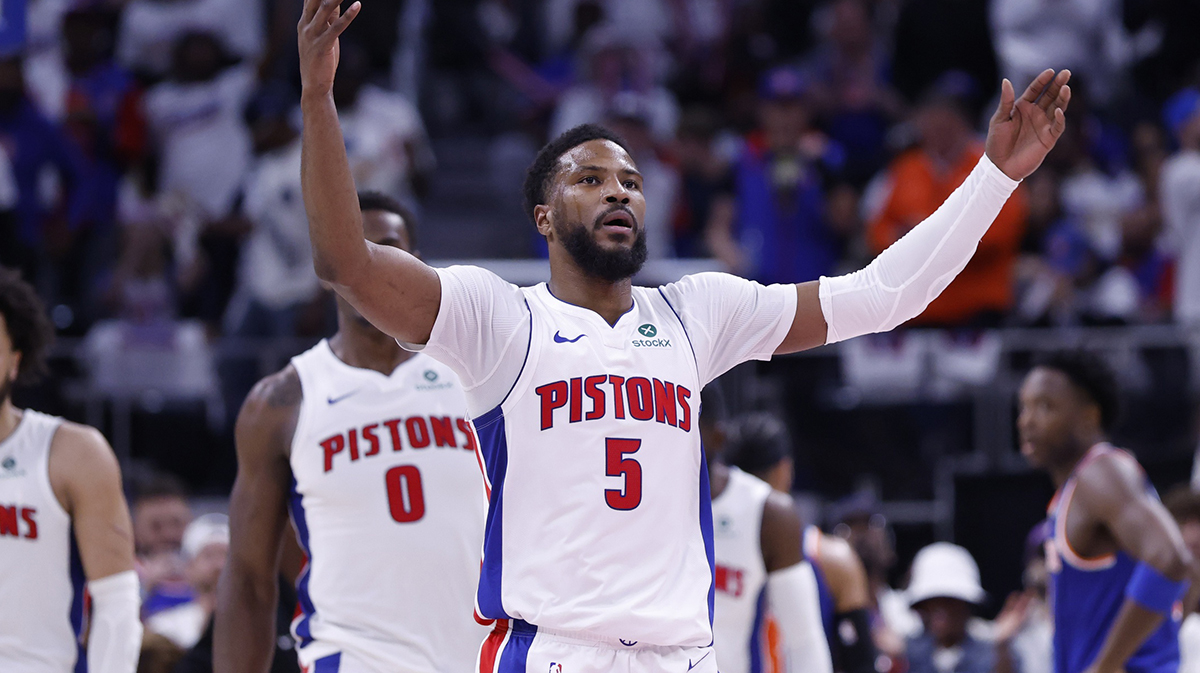ClutchPoints founder and CEO Nish Patel recently spoke with ESPN's Jordan Schultz about his path into the sports media business, finding success in the industry, the most rewarding experiences of his career to date, growing a podcast alongside an NBA star, his aspirations moving forward, and the time that Ray Allen broke his nose in a game of pickup hoops.
Tell us about your hometown.
Born and raised in Seattle. It was an incredible place to grow up. I really love it. I miss it. I couldn’t have had a better experience. Hoop wise, there’s a lot of great players – specifically that came from Seattle. And I had the good fortune of playing against a lot of them as a kid.
My AAU program had Brandon Roy and Martell Webster. There was a great, great gym called St. Joe’s where all of the guys would come. Those two, Jamal Crawford, Nate Robinson, Terrence Williams, Peyton Siva, Will Conroy, Aaron Brooks, IT, Jason Terry, Marvin Williams, it goes on and on. I spent countless nights working out and just playing there. And now, there’s this wonderful new generation of hoopers from the 206: Zach LaVine, Dejounte Murray, Kevin Porter, Matisse Thybulle. That’s a huge credit to Jamal too. He’s helped cultivate the hoop scene and brings back stars every summer for his Pro-Am.
And my senior year, we actually took our school down-state for the first time in its history. That was unforgettable. I dropped 21 points in the first quarter (5-5 from 3) in the game that sent us.
I got to see a lot of Zach when I was at UCLA, so I got to see him there.
So you saw firsthand that he was going to be special. He’s on a terrible team, but Zach’s having an unbelievable year.
Who was your favorite player growing up there?
If I had to pick one, it was Ray Allen. And then when he came to Seattle, it was such a treat to watch him. I was a shooting guard, and I played for two years at Seattle U and then two more years at Occidental College nearby you in LA. To watch Ray and have the opportunity to work out with him was totally baffling because I've never seen anybody shoot like that. So effortless and beautiful. I used to call him Silk.
What's the biggest lesson you learned from being around a professional organization like the Sonics at an early age?
How hard it is to build a culture. That’s what we’re seeing in today’s game. Many of the teams experiencing success; they’re the ones really investing in culture and a healthy team dynamic that goes from player, to staff, to GM. Everything matters.
In being exposed to the NBA from a young age, I learned just how challenging this league can be. I also learned the advantages of surrounding yourself with good, like-minded people. And, I noticed that it’s okay and actually rather beneficial to be around those who think differently. Better yet, I’d rather be the least smartest person in the room than the smartest. My pops instilled that in me as a kid and I never really understood what he meant until I got older. Most of all though, I learned how brutal the NBA can be – being traded, being cut. It’s just a brutal business. It’s a business more than anything else, and it’s very hard to overstate how hard it can be. These are human beings with emotions just like the rest of us. These are young men with families to take care of and worry about.
What is one of your most fun NBA stories?
The funniest story for sure is when Ray Allen broke my nose. We were playing cutthroat one day during the summer, and I had a game-point. I was talking a lot of trash that quite honestly I shouldn’t have been saying. I tried to crowd him defensively. He swept through with the sharpest elbow I’d ever felt and shattered my nose, totally broken. There must have been upwards of 40 people there too. The other good one was when I beat Rashard Lewis at HORSE, twice! You’ll have to ask him about that one though, but forewarning: He might have selective memory.

Was this at the practice facility?
No, this was at my house.
Oh man. How long was the recovery for that?
Probably at least two months, it was pretty bad. Surgery was a nasty ordeal. But Ray sent me a video game console and a game that he was on the cover of. He called me quite a bit in the wake of it to check in and see how I was doing. That’s part of the reason I love Ray, because he’s as classy a guy as they come. Plus, he’s Jesus.
He must not have liked the fact that he was about to lose to you.
I don’t think I realized how competitive he was in a game like that. He didn’t want to lose to me. He didn’t want to lose in front of other people. That was kind of the prime of my basketball career too. I should have never went at Ray like that!
I think that's what's so fascinating about Hall of Fame players is there are levels of greatness. When you get to that point, like Ray, even the most mundane, one-on-one cutthroat game means something. Losing is not acceptable, no matter the circumstance.
Your spark for interest in sports, did that come from your dad or where did it come from?
I've been obsessed with sports my whole life. There was nothing that I wanted to do more than talk about sports and play sports. I used to live in the gym. We had a halfcourt at home too, and I remember staying out shooting at 1, 2 in the morning. This is the dead of Seattle winter we’re talking with the freezing air coming in from the lake. Without fail, one – or both of my parents would be yelling at me to come inside. For extra cardio, I’d stay out and keep shooting, but then run under the hoop so the ball wouldn’t bounce.
Some of my earliest memories are going to the Kingdome for Mariners games and going to Sonics or Huskies games, and then of course playing and being really competitive with it. Playing in college was very important to me. My dad was always there to help guide me as a player. My mom supported everything I did. Neither missed a game. I was very fortunate.
The only thing I ever wanted to do after college was to become a sports journalist. That was the only thing I wanted to do and I was obsessed with it. I was relentless about it. I did all the internships that I could possibly do and took every meeting I could. I also became a voracious reader, just consuming one story after another to improve my knowledge, yes, but also to emulate tendencies, sentence structure and vocabulary.
I was hired to write a blog at the very end of my senior year of college, and that blog propelled me into the sports world. It took me a long time to break in and really get settled in, but it cemented that yes, I want to do this.
I was getting paid nothing, but I was writing more and more. I love the process of crafting a story and doing interviews. Everything about it, to me, is great. And I knew I wanted to be on TV because as much as I love talking about sports, I felt like if I could just get in front of a camera, I’d really have an opportunity to excel. I don’t get nervous with the camera. In fact, it elevates me. I can’t get enough to be honest. But I needed a shot man, and sometimes it felt like I’d never get one.
How did you get that first break with basketball reporting, was it that blog you wrote for?
That blog was called “Ten Feet High” (on the site Sportsfanlive.com) and it was named one of the best sports blogs of 2010, if I recall correctly. It wasn’t really a break-though. I graduated college in 2009, I moved to New York, and couldn’t find a job in sports, but I was doing the blog on the side. Basically what happened was I got hired several months later to be a copy editor at FanHouse.com. I was editing stories for like a year, and then that's when Huffington Post offered me their sports columnist role. It took me about a year and a half once I graduated school to really feel like I was at least in the industry. But even then, I couldn’t shake the feeling of anonymity. It hurt me. I craved so much more.
What was the transition from there to where you are now?
I did NBC Sports radio because I wanted to do radio, so I started doing that on Sunday mornings. I did SiriusXM Radio, I did an afternoon show, and then I ended up getting hired by Yahoo Sports. About 15 months later came the ESPN opportunity. I should note that prior to Yahoo, I worked three straight years as Bleacher Report's on-air college basketball analyst during the tournament (I couldn’t do it the fourth year once Yahoo came into play). So basically for like 5 or 6 weeks I would come in during March Madness and it was one of the best things I’ve ever done. I worked with my guy Adam Lefkoe, who’s really accelerated his career, and this amazing crew at BR. We had an incredible time doing it. That was the first consistent on-camera platform I had, so there were quite a few things that transpired before the ESPN role.
You've been working how many years in sports media now?
Basically 10 years.
And what has been your greatest experience in those 10 years?
The Pull-Up Pod with CJ [McCollum] has been an unbelievable experience because he is one of the truly great people and players, and everything he does has a purpose. We were tight beforehand, but now I’ve really been able to see inside the life of an NBA star and how he operates. They “why” behind a certain workout, a meal or even a conditioning drill. CJ has become one of my best friends. He’s a great all-around human being and a true example of “thinking it into existence,” as he often says.
Being on TV and the overall platform that I have been given with ESPN has also been surreal. I was extremely blessed to do The Boardroom with Kevin Durant and Rich Kleiman. That was like a pinch yourself kind of deal, because our team was going on these sick shoots across the country talking with the most amazing, creative people about sports and business. It was really special. I came away so impressed with Kevin and Rich, as well as Jay Williams – not only with their minds but as quality people. The time and effort everyone has sunk into The Boardroom – the fresh and dynamic collaborative ideas – that’s why the show has achieved this level of success.

You mentioned you knew CJ from before, and I'm assuming maybe you knew KD from the Supersonics days. How did you make your sport connections?
I actually did not know KD beforehand. I knew CJ because I’m really close with Earl Watson. He was CJ’s guy, like his veteran and his assistant coach in Portland. He was the one who was like, “You really need to meet this guy, he's special and he's going to do really big things.” That was very early on in CJ's career and we really hit it off.
For me, the connections are really a word-of-mouth thing. Of all the questions that I get asked about being in sports media, that is probably the most consistent. Which is like, “How do you build up these relationships?” It’s really all about treating people right and realizing that it’s a two-way street. If you’re going to try to get information, you better eventually have something to give in return. If you want to build up a relationship with a player, GM, coach, or whatever it is, an agent, 90-95% of the time you're just checking in to see how somebody’s doing. It’s like any other relationship. Are you genuine? Do you really care about the person? Or are you just there for a transactional relationship? Because that’s BS.
What is the coolest story you've ever broken or written about?
Biggest, most recent stories: Was fortunate enough to break the Todd Gurley-to-Atlanta move just the other day. That was a really fun one because it came so early in the morning and I was up most of the night waiting by my phone. Plus, Gurley’s a monster and I loved the move for both sides. Also reported star corner Desmond Trufant to the Lions as well, which I loved for Detroit. Was dope to report the numbers on Malcolm Jenkins going to New Orleans. Quite a few people were surprised Philly didn’t pay him. I had a few more, including the Kyle Allen trade to the Redskins and Nickell Robey-Coleman to the Eagles. I remember being pretty amped up when I broke the news that Steve Sarkisian would be the next Falcons OC. That one seemed to really move the needle. The Michael Bennett trade to Dallas was dope because I was able to collaborate with Adam on it. Free agency for sure – both in terms of the NFL and NBA – is a great, great time. I feel like it’s even usurped the games for some fans. As sports fans, I think we love the uncertainty of it all.

What advice do you have for somebody who wants to get into sports reporting?
This is such an important thing. I talk to so many kids and the first thing they ask is “how do you get in?” and the second thing is “how do you develop relationships?” The answer I give is to develop your writing first and foremost because it’s a very important skill that if you can hone, craft, and develop your own style, then you'll be way ahead of the game. There’s always going to be value in the written word and it’s a really meaningful way to separate yourself. Also, everybody seems to have a hot take. With social media, anyone can say anything. It’s wild. But if you can really write and you have that skill in your arsenal, it’ll apply to everything you’re trying to do in the business, not just writing stories. So that’s No. 1.
No. 2, if you have an opportunity to get an internship in any capacity, jump on it. And if you can't do that or you don’t know where to start with that, then start a blog or a podcast. Because just like the writing, podcasts will give you a platform to hone your own style, learn how to interview and most importantly, learn how to listen – and then react. I think listening is enormously important and it’ll help you when you're interviewing for a job as well. Listening and responding, crafting a worthy and relevant response. Those to me are the most important things.
How did you come up with the idea for the Pull Up Pod with CJ, and how did it come to fruition?
This is full circle in terms of relationships. The person who hired me to do NBC Sports Radio on Sunday mornings when I was really young – his name is Chris Corcoran, and he's one of the all-time people in this industry. We had kept in touch the entire time. Years went by, we didn't work together afterward, but we kept a relationship and made sure we were in consistent contact. Chris came to me about two years ago saying, “We hired CJ McCollum to do this podcast – on basketball, wine, and social media, a fully encompassing sports podcast.” And he said “We hired [CJ], and we think you’d be the ideal co-host.”
I remember that phone call with vivid detail, because I knew its significance even then. I remember thinking, “that’s one of the best phone calls I’ve ever had.” I knew it was a huge break, an opportunity, and I pounced, because the podcast space was exploding. I didn’t really have experience, but I knew that kind of long-form conversation could lend itself to some really special things, especially because of my friendship with C.
I was very excited, very fortunate, and they came up with the name too. I love the name because if you watch CJ, he’s a pull-up artist.
Awesome. Tell me more about the overall vision of the Pull Up Pod and any changes you plan to make.
We do it once a week without fail pretty much. We’ve experimented with having guests every week, every third or fourth week. The response is usually best I think when it’s every three or four episodes, because with guests, obviously, that episode is specific to the person. During the season, most of the episodes are just the two of us because guys are busier. We like to stay in that 40-50 minute range too. Guests are usually 25 minutes and you only end up having 15 or 20-minute conversations. That has been our most successful format, but it’s never an exact science, and I actually prefer it that way. I enjoy the fluidity of it all.
We also decided to branch out and hit other sports. We had a terrific conversation with Tim Anderson of the White Sox. That’s my man right there. He’s going to change baseball in a very positive and very timely way. I brought Bobby Wagner on, who was great. B-Wagz is the most humble dude. We want to expand even further too, whether it's music or a well-regarded chef. For example, we had my good friend Common on, and that was one of the best received pods yet. It was about basketball, but also so much more and it had much more depth than purely just sports. I think CJ and I have reached the point where we know that every week will consist of a great basketball conversation. Now the challenge becomes, how can we do more? How we can add more elements to Pull Up while staying true to our vision? Because then suddenly we’re serving a far greater, more diverse audience while still honoring our awesome and loyal fan base.
I think you already answered my question about the most successful episode, was that the Common one?
I think, from a numbers standpoint, the most successful episode is when we had KD on pretty early. Him and CJ got in what was perceived as a social media beef, but there really wasn’t any beef. There's no context on social media. Everyone thought they were fighting. Meanwhile, I’m in hysterics because I know that they’re really tight and I know the context of the conversation. But yeah, when I first saw it, I was like, “What’s going on?” Let me find out! That actually created massive buzz for the podcast. It ended up being two episodes because Kevin stuck around so long. We had Draymond [Green] on, he was really good – that Ep was up there. One thing I’ve learned Nish that I do think is worth sharing: It’s not just about the name, it’s about the story. In fact, the story must come first. That’s the heart of everything.
Last few questions here, your bio on Instagram has ESPN, ESPN 2, Pull Up Pod, and The Boardroom; how do you manage your time to do this?
It can be very difficult because I have two young kids who I’m crazy about and an amazing wife who also works. We have four animals – two cats and two dogs.
I'm very aware of where I came from and how fortunate I am, so I feel like if I don’t attack my career with the same type of relentless attitude and downright winning mentality, it will just be a total waste. Honestly, I should probably take some therapy to address it, because I go too hard. And I know it too. But truthfully, I feel so blessed to have grown up the way I did and have access to the type of people that I do. I’m so passionate about what I’m doing and I’d be lying to you – and to myself – if I didn’t say I want to be one of the best. I want to be a great one.
I knew from an early age I wasn't going to go into Starbucks. I really wanted to create my own path, my own name. In doing so, I realized over the last 10 years that I need to make [my kids and my wife] proud. I need to be selfish about it because at some point if you don’t attack your career and you don’t want to be successful then somebody else will. There’s too many talented people and there’s very few slots to accomplish what you want to do. It’s a necessity, not an option.
You've come this far with 10 years in sports media; what's next and what are your future goals?
I really want to become one of the leading sports broadcasters and journalists. I look at the “blue chippers” if you will, like Adam Schefter has become a really good friend and I ask him all the time, “How do you keep striving and keep pushing?” He basically tells me what my dad has always told me: “If you really want to become great, once you get to some pinnacle or apex, then if you don't work just as hard or harder, you won't be able to stay there, and in fact you'll regress.” With respect to everyone else in this field, my goal is to become one of the leading sports reporters and broadcasters in America, and to really make a difference. What I mean by that is the pride I take in trying to help young kids, because I see so much of myself. I think having a mentor is very important; someone to help guide you even when you least expect it.

In terms of where you want to be, do you want to become the well-known NFL, the well-known NBA guy, college?
It’s a blessing, but it can be tricky, yes. My thing is how can I find a way to add the most possible value to ESPN? How can I differentiate myself? I have the insider/analyst role for the NFL and the NBA. But I love talking about gambling and I’m obsessed with Daily Wager. I look forward to the next day the moment I’m off the air. To be clear, I don’t want to be known as a jack of all trades, but master of none. My thought process is simple: I want to be as versatile and dynamic as possible and present myself in a certain light that yes, I can do all these different things. You need me to guest-host Golic and Wingo? Let’s go. NBA Insiders on ESPN Radio? Sign me up! I just say yes to everything because that’s the only way I know. Opportunities in this business are like gold and you must take advantage.
In four or five years, do you want to be known in the same breath as Shams, Woj, Schefter, is that kind of the goal?
In theory, yes. Those guys are the elite of the elite, and what they’re doing is breaking stories. I’ll break stories, but it’s not necessarily a core focus. So on one end, yes, I do want to be in the same conversation as Woj and Schefter. But on the other hand, I also look at other generational talents in sports like Jeremy Schaap, Dan Patrick, Bob Costas, Robin Roberts, Doris Burke, Steve Levy, Neil Everett, Hannah Storm, Mike Tirico, Scott Fowler, Rece Davis, Michelle Tafoya, Kirk Herbstreit, Suzy Kolber, John Buccigross, Scott Van Pelt. If I can somehow marry these two components together, well then now we’re talking! But those men and women are different. The ability to tell a story and take you inside that story – to really bring it to life – that inspires me. That’s so next level! But candidly, I do think about it all the time… Almost to a fault? Well yes, that too, but I think you’ve figured that out by now.
Jordan encourages you to reach out to him on his Instagram if you have any questions about how he can help you or if you just want to talk!

